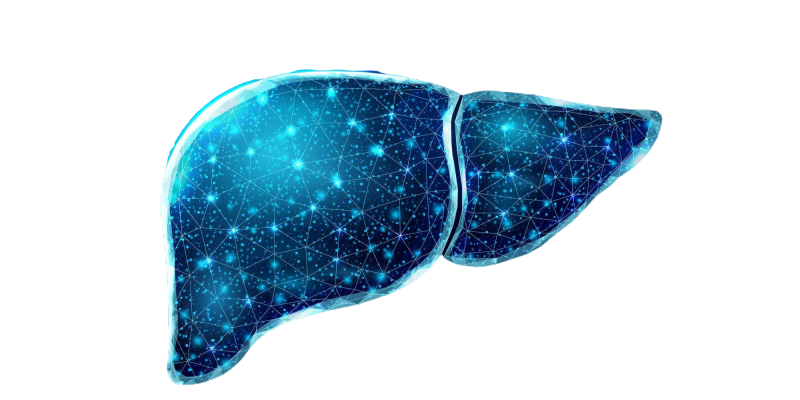Emergency Cases
+91 89280 08099
If you suspect cancer or are currently managing it and face a medical emergency, please call us for guidance on how to handle the situation.

Liver cancer develops in the liver, a vital organ responsible for detoxifying the blood, producing bile for digestion, and storing energy. It is most commonly classified as hepatocellular carcinoma (HCC), which begins in the liver’s main cells, called hepatocytes. Other less common types include intrahepatic cholangiocarcinoma (bile duct cancer) and angiosarcoma.
Liver cancer can be primary, originating in the liver, or secondary, where cancer spreads to the liver from other parts of the body, such as the colon, pancreas, or lungs. Early detection is essential, as liver cancer symptoms often appear in advanced stages. At Apex, our multidisciplinary approach to liver cancer care includes state-of-the-art diagnostic imaging, advanced treatment options, and comprehensive patient support to improve outcomes.
Key symptoms of liver cancer include:
Note: Early-stage liver cancer may not present noticeable symptoms. Regular checkups and liver health screenings are crucial, especially for individuals with risk factors.
Liver cancer can result from several risk factors, including:
If you or someone you know is experiencing symptoms of liver cancer or has risk factors, don’t wait—schedule a consultation with our specialized oncology team. At Apex, we combine advanced diagnostic tools with personalized treatment plans to provide the best possible care. Early detection saves lives. Reach out to us today!
Have a question?
Call us now.
Need support?
Drop us an email.
3rd Floor, 301 Meraki Arena, Above Croma Store, Sion -Trombay Road, Opp. Godrej RKS, Chembur, Mumbai Pincode - 400 071.


